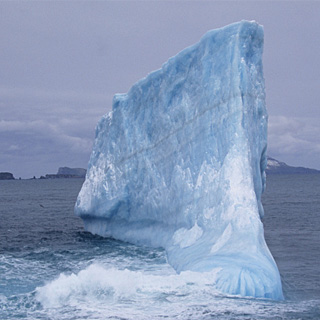Scientists: Sea levels could rise 1 metre as Antarctic ice melts
 Wellington - A large amount of permanent Antarctic ice could melt in the next 100 years, raising sea levels around the world by up to 1 metre as the earth's climate warms, a New Zealand scientist said Thursday.
Wellington - A large amount of permanent Antarctic ice could melt in the next 100 years, raising sea levels around the world by up to 1 metre as the earth's climate warms, a New Zealand scientist said Thursday.
"If you live in Bangladesh, New Orleans, Miami or Wellington, this is a significant issue in terms of timing and adapting to the change in climate," Professor Tim Naish, director of Victoria University's Antarctic Research Centre, told Radio New Zealand.
He was commenting on new research by a team of 50 scientists showing that only a slight rise in carbon dioxide concentrations in the atmosphere could affect the stability of the West Antarctic ice sheet with disastrous consequences for low-lying population centres around the world.
Naish was co-leader of a climate change project involving the scientists from New Zealand, Germany, Italy and the United States whose findings were published Thursday in the scientific journal Nature.
The findings were based on a study of a 1,280-metre-long core taken from beneath the sea floor under the Ross Ice Shelf as part of the Antarctic Geological Drilling, or ANDRILL, research programme.
Naish said that information gleaned from the rock and sediment core showed that changes in the tilt of Earth's axis had played a major role in ocean warming that drove repeated cycles of growth and retreat of the West Antarctic ice sheet between 3 million and 5 million years ago.
He said it appeared that when atmospheric carbon dioxide concentrations reached 400 parts per million about 4 million years ago, the associated global warming caused major fluctuations in the size of the ice sheet.
"Carbon dioxide concentration in the atmosphere is again approaching 400 parts per million," he said. "Geological archives, such as the ANDRILL core, highlight the risk that a significant body of permanent Antarctic ice could be lost within the next century as Earth's climate continues to warm.
"Based on ANDRILL data combined with computer models of ice sheet behaviour, collapse of the entire West Antarctic ice sheet is likely to occur on the order of 1,000 years, but recent studies show that melting has already begun."
Simon Boxer, climate change campaigner of the Greenpeace environmental organization, said the research indicated that ice levels in Antarctica had not been as low for a millennium.
"Combine that with the incredible loss of ice in the Arctic and you've got some very stark reminders that climate change is occurring and is worse than originally thought," Boxer said.
"The science is so stark and ahead of predictions that developed countries like New Zealand must now adopt emission reduction targets of at least 40 per cent below 1990 levels by 2020 if the world is to avoid catastrophic climate change," he advised. (dpa)